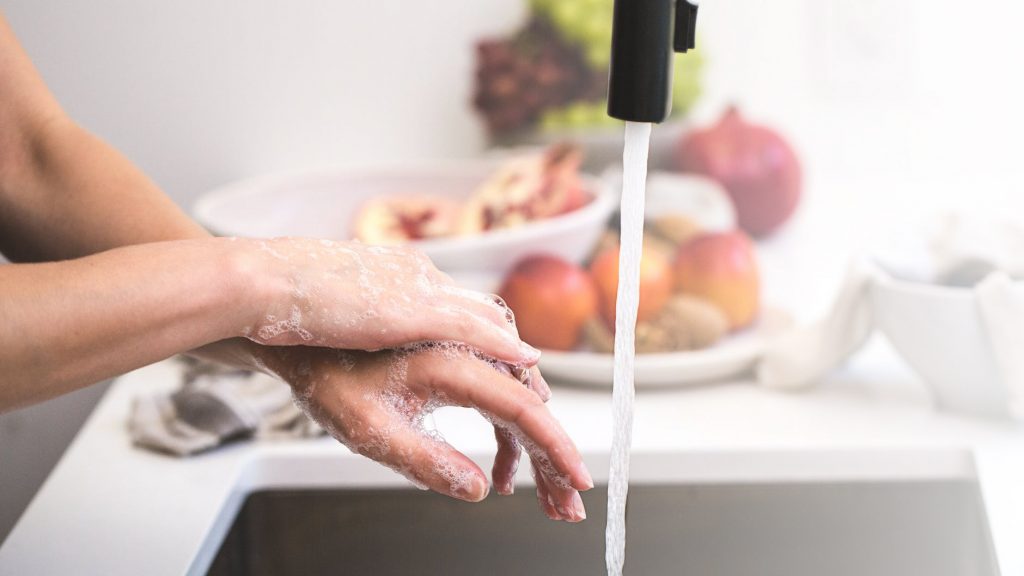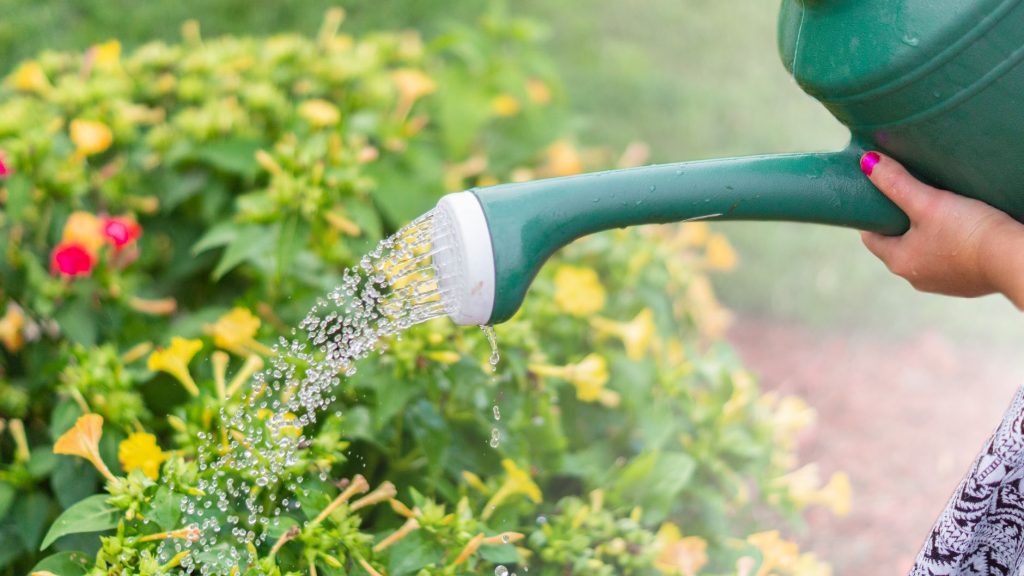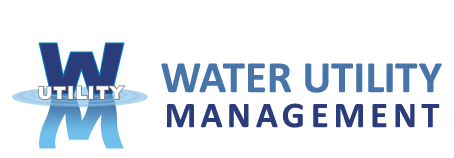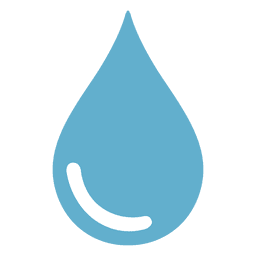WHY CONSERVE?
All the water provided by Water Utility Management comes from underground aquifers in Georgia, most commonly the Floridan Aquifer System. The Floridan Aquifer is a vast limestone formation located approximately 300-400 feet below ground, under a layer of clay. As water filters through the earth, it becomes very clean; the Floridan Aquifer System naturally contains some of the cleanest water in the world. It is our responsibility to protect this resource for the use of future generations.
Georgia EPD and WUM encourage water conservation and water-saving habits and actions every day. In order to be responsible stewards of our water supply, residents are encouraged to take steps to conserve water in their homes and places of business, and are reminded to abide by the state’s permanent year-round outdoor watering restrictions, which limits outdoor watering to before 10 a.m. and after 4 p.m. to avoid the hottest part of the day when more evaporation occurs.
Statewide Outdoor Watering Schedule
The Georgia Water Stewardship Act went into effect statewide on June 2, 2010. It allows daily outdoor watering for purposes of planting, growing, managing, or maintaining ground cover, trees, shrubs, or other plants only between the hours of 4 p.m. and 10 a.m. by anyone whose water is supplied by a water system permitted by the Environmental Protection Division.
Level 1 Drought Notice
The GA Environmental Protection Division (EPD) has issued a Level 1 Drought Notice. In addition to following best water conservation practices, the following activities may be done at any time of day under a Level 1 Drought Response:
- Irrigation of personal food gardens may be done at any time of day;
- Irrigation of new and replanted plant, seed, or turf may be done at any time of day for 30 days after installation;
- Drip irrigation or irrigation using soaker hoses may be done at any time of day; and
- Hand watering with a hose with automatic cutoff or handheld container may be done at any time of day.
Indoor Tips for Water Conservation

Changing your behavior around the house can save on monthly water bills and help protect a precious resource.
- Install aerators on household faucets.
- Fill the bathtub half full while bathing.
- Shorten your shower and put in an aerator.
- Thaw food in the refrigerator rather than under running water.
- Check sinks, toilets and shower heads for household leaks.
- Run the dishwasher and washing machine only when full.
- Don’t throw unused water down the drain, use it for plants and trees.
- Don’t waste food.
- Recycle materials whenever possible.
- When washing hands, turn the faucet off while lathering, then turn the faucet back on when ready to rinse the soap.
Outdoor Tips for Water Conservation

Make sure that you’re doing what you can in the yard to stop water waste.
- Consider replacing a portion of your grass with desert landscaping; use plants, like succulents or cacti, that do not require much water to flourish.
- Use drip irrigation on shrubs and trees to provide the appropriate amount of water without overdoing it.
- Change your irrigation controller with the seasons; grass and plants don’t require as much water during the cooler months. Factor in rainfall so you can water less based on your rainfall amount. * Use a rain gauge! Click here for instructions on constructing a rain gauge from a recycled bottle!
- Water your lawn in the early morning or evening when temperatures are cooler.
- Check sprinkler heads to assure they are spraying properly.
- Use a broom instead of a hose to clean your driveway and sidewalks.
- Set your lawn mower to a higher setting, longer grass keeps the soil moist.
- Weed your lawn and garden regularly.
- Collect rainwater for irrigation, and reuse water from the house for plants.
Spring Tips for Water Conservation
Special Spring Announcement: Spring is in full swing and many have already planted their flowers and started gardening. While April showers bring May flowers, the practice of water conservation by using/checking sprinkler controllers should be enacted as the spring months roll into the summer. This season also offers great opportunities to take your water-conservation efforts one step further by using a Rain Barrel.
- Check for drips! A dripping faucet or leaking toilet can produce several gallons of wasted water in a short time.
- Check the weather. Keep an eye on the forecast and avoid watering if rain is on the way!
- Install water-efficient fixtures. Visit https://www.epa.gov/watersense for more information.
- Shower smart. During the spring/summer, there is typically more activity that leads to getting dirtier, sandier, and grimier with activities involving the outdoor heat. With less grime (typically), one could set a goal to spend less time in the shower! Try to cut down three or more minutes in the fall and you’ll be surprised how much water you end up saving.
-
Use regionally appropriate, low water-using and native plants.
- Group similar plants together for irrigation.
-
Know the location of your property shut-off valve. In the event your property experiences a water leak, knowing the location of your shut-off valve could save you money on water and damage repairs. The faster you can turn off the water, the less goes to waste.
- Invest in rain barrels. If you plan to maintain a garden, its a better investment long term to purchase and use a rain barrel.
- Raise your lawn mower cutting height. Longer grass promotes deeper root growth and a more drought resistant lawn. Longer grass blades also help shade each other, reducing evaporation, and minimizing weed growth.
- Add mulch to flower beds. In most cases, mulch can reduce evaporation and reduce water usage by over 25 percent.
- Monitor your water meter before and after cleaning/preparing your pool in anticipation of Summer to ensure you don’t have a hidden leak.
Prepare for Summer in the Southeast. Once the weather gets warmer, household water usage goes up. Do you normally experience high water bills during summer months? Plan for Summer by inspecting lawn irrigation, household pipes, and toilets. Contact our office if you have any questions on your typical usage or ways to lower it in the future.
Fall Tips for Water Conservation
Special Fall Announcement: In the cooler months, outdoor plants need less water. Water when plants show signs of distress (curling, wilting, graying foliage). Due to reduced temperatures and increased rainfall in the autumn/winter months, this season offers great opportunities to take your water-conservation efforts one step further—and many of these ways actually save you time and effort.
- Give the sprinklers a break. Once the heat subsides, your lawn should need little-to-no watering.
- Not only do plants require less water in the fall, but over watering them can lead to diseases or fungus.
- Mulch is still your friend, especially if you’re planting for the fall or winter months.
- Choose the right plants for your project! Some fall plants don’t require a lot of watering— mums, for example, really only need to be watered up to three times a week.
- Check the weather. In many parts of the country, fall typically brings more rain than summer did, so keep an eye on the forecast and avoid watering if rain is on the way.
- Shower smart. During the summer, there is typically more activity that leads to getting dirtier, sandier, and grimier with activities involving the outdoor heat. With less grime (typically), one could set a goal to spend less time in the shower! Try to cut down three or more minutes in the fall and you’ll be surprised how much water you end up saving.
- Re-purpose the pool after summer months go bye-bye. If you’re lowering the water level or draining your pool for the cooler months, try reusing that water for washing your car.
- Know the location of your property shut-off valve. In the event your property experiences a water leak, knowing the location of your shut-off valve could save you money on water and damage repairs. The faster you can turn off the water, the less goes to waste.
- Insulate water pipes in unheated areas. When temperatures drop below 32 degrees, exposed water pipes can quickly become a property manager’s worst nightmare. To reduce the likelihood of freezing, wrap water pipes in unheated areas with insulation tubes.
Get a head start on ‘winter’ prep in the South East. Once the weather gets cooler, it can be more difficult to “motivate” ourselves to face the cold and check indoors and outdoors for leaky pipes and faucets. Cooler weather can also make repairs more challenging, please remember to let pipes drip if a freeze is expected by local weather experts and news media.
Please visit the links below for more information:
Level 1 Drought Notice
The GA Environmental Protection Division (EPD) has issued a Level 1 Drought Notice. In addition to following best water conservation practices, the following activities may be done at any time of day under a Level 1 Drought Response:
- Irrigation of personal food gardens may be done at any time of day;
- Irrigation of new and replanted plant, seed, or turf may be done at any time of day for 30 days after installation;
- Drip irrigation or irrigation using soaker hoses may be done at any time of day; and
- Hand watering with a hose with automatic cutoff or handheld container may be done at any time of day.

